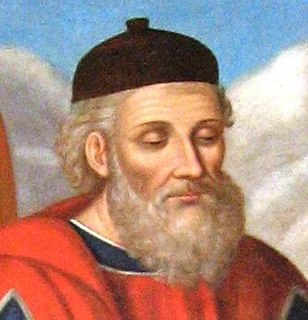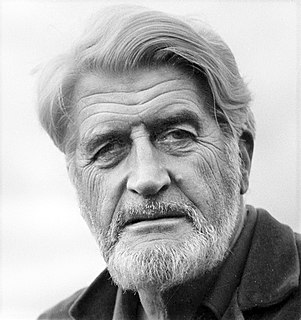A Quote by Diodorus Siculus
The myths about Hades and the gods, though they are pure invention, help to make men virtuous.
Related Quotes
"The myths," says Horace in his Ars Poetica, "have been invented by wise men to strengthen the laws and teach moral truths." While Horace endeavored to make clear the very spirit and essence of the ancient myths, Euhemerus pretended, on the contrary, that "myths were the legendary history of kings and heroes, transformed into gods by the admiration of the nations." It is the latter method which was inferentially followed by Christians when they agreed upon the acceptation of euhemerized patriarchs, and mistook them for men who had really lived.
Now the myths represent the Gods themselves and the goodness of the Gods subject always to the distinction of the speakable and the unspeakable, the revealed and the unrevealed, that which is clear and that which is hidden: since, just as the Gods have made the goods of sense common to all, but those of intellect only to the wise, so the myths state the existence of Gods to all, but who and what they are only to those who can understand.
The Aztec gods and goddesses are, as far as we have known anything about them, an unlovely and unlovable lot. In their myths there is no grace or charm, no poetry. Only this perpetual grudge, grudge, grudging, one god grudging another, the gods grudging men their existence, and men grudging the animals. The goddess of love is goddess of dirt and prostitution, a dirt-eater, a horror, without a touch of tenderness.
The Bible must be the invention of either good men or angels, bad men or devils, or of God. It could not be the invention of good men or angels, for they neither would or could make a book, and tell lies all the time they were writing it, saying, 'Thus saith the Lord,' when it was their own invention. It could not be the invention of bad men or devils, for they would not make a book which commands all duty, forbids all sin, and condemns their souls to hell for all eternity. Therefore, I draw this conclusion, that the Bible must be given by divine inspiration.
But it seems that something has happened that has never happened before; though we know not just when, or why, or how, or where. Men have left God not for gods, they say, but for no gods; and this has never happened before. That men both deny gods and worship gods, professing first Reason, and the money, and power, and what they call life, or race, or dialect.The church disowned, the tower overthrown, the bells upturned, what have we to do but stand with empty hands and palms upturned in an age which advances progressively backwards?
Men create their own gods and thus have some slight understanding that they are self-fabricated. Women are much more susceptible, because they are completely oppressed by men; they take men at their word and believe in the gods that men have made up. The situation of women, their culture, makes them kneel more often before the gods that have been created by men than men themselves do, who know what they've done. To this extent, women will be more fanatical, whether it is for fascism or for totalitarianism.
It may be said that myths give to the transcendent reality an immanent, this-worldly objectivity. Myths speak about gods and demons as powers on which man knows himself to be dependent, powers whose favors he needs, powers whose wrath he fears. Myths express the knowledge that man is not master of the world and his life, that the world within which he lives is full of riddles and mysteries and that human life also is full of riddles and mysteries.








































